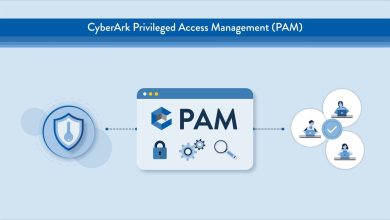Surge in Scam Calls Hits Malaysia

Whoscall, the industry-leading digital anti-fraud app under the TrustTech service provider Gogolook, identified a 100.92% increase in scam calls received by its Malaysian users, totalling 1,632,290 in 2023 compared to 812,428 in the previous year based on Whoscall’s 2023 Annual Report.
Man Yong, Country Marketing Lead of Gogolook Malaysia said, “The report also shows that out of the 7 Asian countries, Malaysia is the second top country seeing an increase in scam calls after Hong Kong followed by Japan taking the third spot, while other Asian countries such as Taiwan, Thailand, Korea, and the Philippines are seeing a decrease in scam calls. Despite the increased risk of scam calls in Malaysia, Whoscall managed to help its users by identifying and adding the “scam” tagging to 1,632,290 calls in 2023 alone. However, 10.35%, equivalent to 168,946 users, still chose to pick up the tagged scam calls. This is a concern, and we would like to remind our users not to entertain any calls tagged as ‘scams’ and to immediately take action to block the number. Taking these early preventive steps can save you from becoming a victim of scams.”
The Malaysia Royal Malaysia Police (PDRM) is a long-term strategic partner of Whoscall in Malaysia and works closely in database sharing to combat cases of fraud amongst Malaysians. Commenting on the latest trends of online scams in Malaysia, PDRM Anti-Scam Ambassador ASP Rahmat Fitri Abdullah said, “Phone scam is the leading online scam cases with over 2,092 cases with loss amounting to RM65.8 million in just the first two months of 2024 (January – February 2024). Another popular tactic is link or URL scams that are shared through messaging apps. We urge Malaysians to be alert and think twice before clicking on any links.”
ASP Rahmat Fitri also added, “With generative Artificial Intelligence (AI) now used to create fake content, it is becoming hard to differentiate the authenticity of information shared. Malaysia is now seeing emerging trends in AI-based scams by manipulating news where scammers take real news footage and alter the audio clip to achieve a certain goal such as producing positive news on an investment opportunity to win the victims’ trust which has seen more and more Malaysians falling for this trick.”
As scam tactics evolve, Whoscall’s anti-fraud detection scope has expanded from calls and text messages to URL Scanner and ID Security features. By integrating its AI-powered anti-fraud technology, Whoscall has established a leading global advantage in detecting risky links and checking unknown links from various sources under its URL Scanner feature. Recently, Whoscall’s new free feature, ID Security, is transforming user protection by swiftly detecting past leaks with just a phone number. Users gain instant insights into compromised accounts, passwords, and personal details, all at a glance. Plus, it offers vital remedial suggestions for added security. Whoscall is actively expanding its feature offerings to become an essential anti-fraud app that protects its users against constantly evolving scam tactics.
Scam tactics will continue to evolve alongside rapid technological advancement, and it will be harder to differentiate what is safe or real and what is not. The use of technological tools to assess risks and ensure information security is becoming one of the most efficient ways to safeguard against online scams. Take action now and redeem 1 year of Whoscall Premium for FREE before 30 April 2024 at their website and use the promo code “PDRMLawanScams”.
For more information on upcoming events, educational campaigns, and resources, please visit Whoscall’s social media accounts at Facebook and TikTok. We invite all Malaysians to join us in this collective effort to combat scams and protect our communities.




